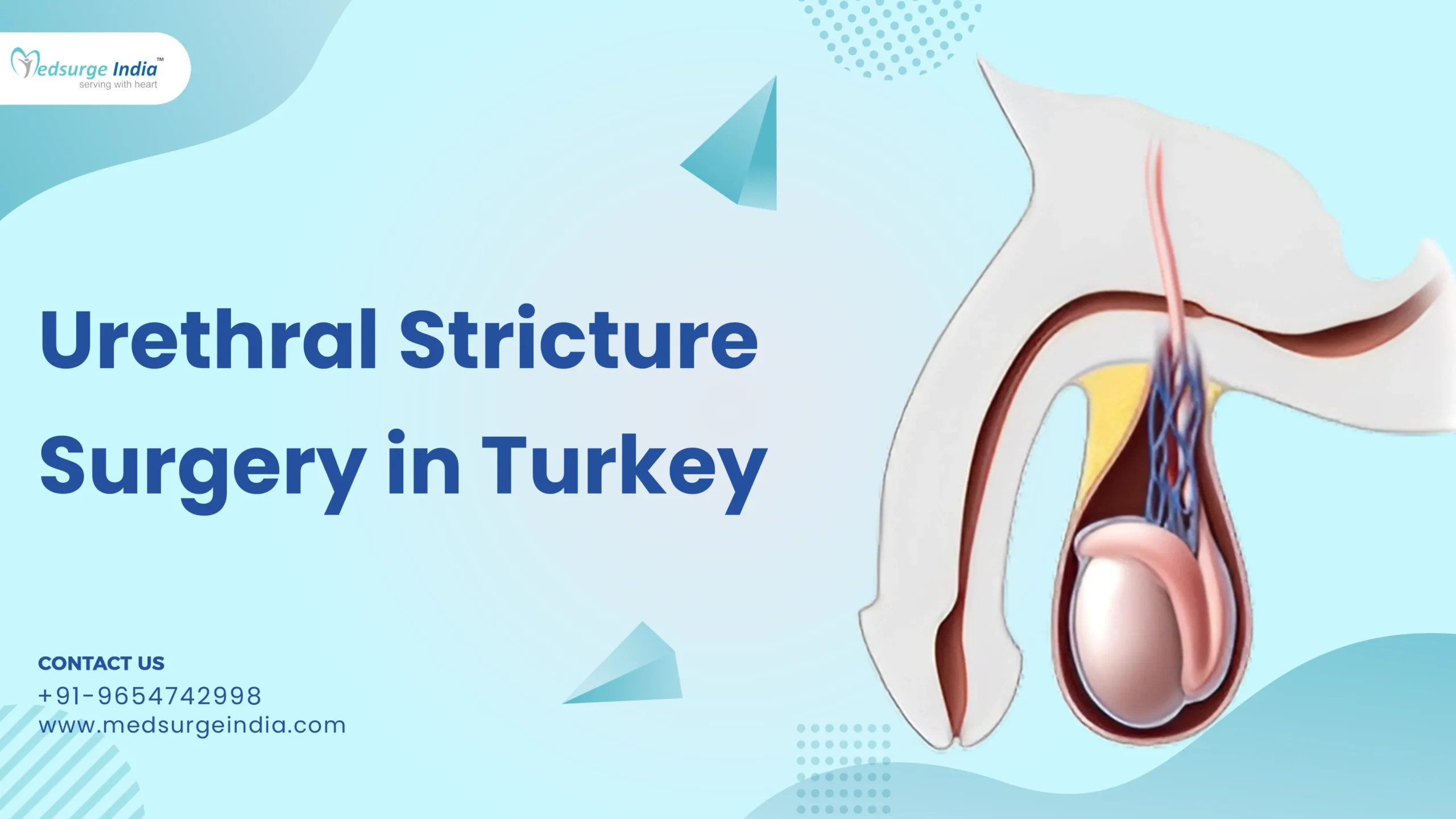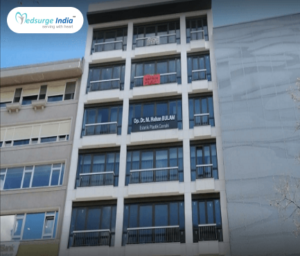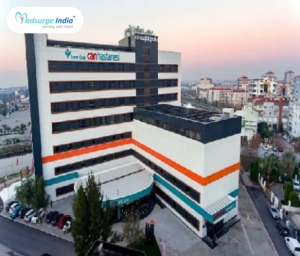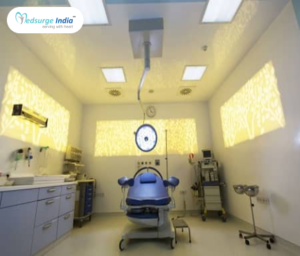Urethral Stricture Surgery Cost in Turkey
Unlock Exclusive Discount : Your Gateway to Premium Healthcare with Medsurge India Health Value Card.

Unlock Exclusive Discount : Your Gateway to Premium Healthcare with Medsurge India Health Value Card.


Urethral stricture surgery cost in Turkey starts from 3000 USD to 12,000 USD depending on the type of procedure and other factors such as the location of cities, doctor expertise, etc.
Following below are the various factors that can affect urethral stricture surgery cost in Turkey:
Severity and Duration of the Stricture: More complex or lengthy strictures typically necessitate advanced surgical methods, which can elevate the total expense of urethral stricture surgery in Turkey.
Type of Surgical Procedure: Procedures such as urethrotomy, urethroplasty, or surgeries involving grafts differ in their complexity and associated cost of urethral stricture surgery in Turkey.
Surgeon’s Qualifications and Skill Level: Surgeons with extensive experience and expertise may command higher fees for their services.
Selection of Hospital or Clinic: High-end hospitals equipped with cutting-edge technology and international certifications may charge more for treatment.
Pre-operative and Post-operative Care: Costs can also include diagnostic assessments, medications, hospital stays, and follow-up appointments.
Anesthesia and Operating Room Fees: The choice of anesthesia and the length of the surgical procedure can affect the overall pricing of urethral stricture surgery in Turkey.
Existing Health Conditions: Patients with additional medical issues may require specialized treatment, which can increase the cost of urethral stricture in Turkey.
Geographical Location in Turkey: Pricing may vary between major cities like Istanbul and Ankara compared to smaller towns.
| Type of Procedure | Prices |
| Open Surgery | $3,000 to $12,000 |
| Urethrotomy | $12000 |
| Dilation | $600 to $1000 |
| Cities | Prices |
| Istanbul | $3000 to $12,000 |
| Antalya | $3000 to $12,000 |
| Izmir | $3000 to $12,000 |
| Ankara | $3000 to $12,000 |
Urethral stricture is a urological issue that primarily affects men. It involves the constriction of the urethra, the passage that facilitates the expulsion of urine from the body. This condition can cause various uncomfortable symptoms, often resulting in a diminished urinary flow. As the urethra narrows, urination becomes increasingly challenging. Other potential symptoms include difficulty fully emptying the bladder, urine spraying, and pain or discomfort during urination.
Although some individuals with urethral stricture may remain asymptomatic and continue their daily routines without any issues, it is crucial to understand that the condition can deteriorate and result in severe complications, such as bladder damage. Therefore, it is vital to seek timely medical intervention.
Men are at a higher risk of developing urethral diseases or experiencing injuries to the urethra due to its longer structure compared to that of women. This anatomical difference is a key reason why strictures are more commonly observed in males, while they are rare in females and infants.
It is crucial to recognize that injuries can occur anywhere along the urethra, from the bladder to the urethral opening at the tip of the penis, leading to a condition known as stricture. This narrowing can significantly impede or even completely block the normal flow of urine. Common causes include:
In many instances, a specific cause may not be identified. In adults, the most frequent contributors to urethral strictures include:
To identify a urethral stricture, we may perform a physical examination or utilize one of the following diagnostic methods:
A range of treatment options is available depending on the severity of the blockage and the presence of scar tissue. The treatment methods include:
Dilation: This procedure is usually performed in a urologist’s office under local anesthesia. The narrowing is gradually widened using larger dilators known as “sounds.” Alternatively, a specialized balloon connected to a catheter may be used to expand the tissue. However, this method is not a permanent fix and requires regular repetition. If the narrowing tends to recur quickly, you may be advised on how to self-catheterize occasionally to help prevent its return. Possible side effects include bleeding and infection, and in some cases, the dilation may result in the creation of a “false passage” or secondary urethral channel.
Urethrotomy: This technique involves using a specialized scope to navigate through the urethra until the stricture is identified. A knife or laser attached to the cystoscope is then used to cut the structure and create an opening. To keep the opening open and promote healing, a catheter may be placed in the urethra. The length of time the catheter needs to remain in place is based on the severity of the stricture.
Open Surgery: A variety of reconstructive methods are available for addressing strictures, with some techniques necessitating one or two surgical interventions. The choice of the most suitable repair approach is influenced by factors such as the location, size, and severity of the stricture. It is essential to recognize that there is no one-size-fits-all solution for every case. The two main categories of repairs are anastomotic urethroplasty and substitution urethroplasty.
After the Procedure: Urethral strictures can reappear after surgical intervention, making it essential for patients to have continuous follow-ups with a urologist. After the removal of the catheter, your doctor will carry out routine physical assessments and X-rays, and may also utilize urethroscopy to evaluate the surgical repair. Although some individuals might face a recurrence of the stricture without needing additional treatment, any obstruction could require procedures such as urethrotomy or dilation. In instances of recurrent severe strictures, a second open surgery may be required.
Also Read:- Urethral Stricture Surgery Cost in India
Urethral stricture surgery in Turkey offers patients access to high-quality urological care at a more affordable price compared to many Western countries. However, the final cost can vary based on several factors, including the severity of the condition, surgical method, and hospital choice. It’s essential to consult with a qualified urologist and plan the procedure with clarity on all associated expenses.
| Estimate Type | Estimated Cost (USD) |
|---|---|
| Total Package Estimate | USD 3,000 – USD 12,000* |
*Final cost depends on hospital, patient condition, and additional procedures/devices if required. Share your reports to get an accurate quote.
Estimated cost range in India: USD 3,000 – USD 12,000*
*For an accurate quote and hospital options, share your reports and preferred city/hospital.
A: All surgical procedures come with inherent risks, such as adverse reactions to anesthesia or the possibility of infections. Urethroplasty is no exception and may involve specific risks and complications, including catheter-related infections, leakage of urine, nerve damage affecting the legs, feet, elbows, or fingers, semen leakage, urine leakage, erectile dysfunction, and discomfort in the scrotum or perineum due to nerve injury.
A: Typically, healthcare providers recommend refraining from masturbation and sexual activity for at least six weeks post-surgery. Additionally, while the catheter is in place, it is advisable to limit prolonged sitting or driving. Although regular walking and stair climbing are generally acceptable, it is best to avoid spreading your legs too wide when navigating stairs or squatting. You may notice new tissue forming at the site from which tissue was removed within approximately three weeks.
A: Urethroplasty is generally considered a long-term solution. During the procedure, the affected section of the urethra, which contains the stricture and scar tissue, is excised. If the stricture is extensive, new tissue may be grafted using a skin flap or buccal mucosal graft to help reconstruct the urethra.
A: Research indicates that urethroplasty is the most effective treatment for urethral strictures that obstruct urine flow, boasting a success rate exceeding 80%. In certain cases, depending on the specifics and duration of the stricture, this success rate can rise to over 90%.

Endourologist
Consultant
20 years of experience
Derindere Hospital, Istanbul
View Doctor
Urologist
Consultant
11 years of experience
Private Duygu Hospital
View Doctor
Urologist
Consultant
14 years of experience
Kolan International Hospital, Istanbul
View Doctor
Urologist
Professor
15 years of experience
Okan University Hospital, Tuzla
View Doctor
Urologist
Consultant
11 years of experience
Medipol University Hospital, İstanbul
View DoctorUrologist and Renal Transplant Specialist
Professor
10 years of experience
KOC University Hospital, Istanbul
View Doctor
Urologist and Renal Transplant Specialist
Professor
15 years of experience
KOC University Hospital, Istanbul
View Doctor
Urologist
Consultant
20 years of experience
Anadolu Medical Center, Kocaeli, Istanbul
View Doctor
Urologist
Consultant
15 years of experience
Kolan International Hospital, Istanbul
View Doctor









By using our site, you agree to our Terms and Conditions, Privacy Policy and Refund Policy. Medsurge India provides reliable healthcare information and treatment options to support informed decision-making. Our content is designed to support and complement the guidance of your treating doctor, helping you feel informed and confident throughout your healthcare journey. We also Accept International Payments.

Copyright © 2025 NSM ONLINE SOLUTIONS PRIVATE LIMITED. All rights reserved.